PHAU




Prevent • Promote • Protect Public Health Ambassadors Uganda www.phauganda.org

WHO WE ARE
Public Health Ambassadors Uganda (PHAU) is a registered nonprofit youth lead and youth serving organization comprising of young people from different spheres of life with strong passion and interest in appealing to fellow young people to access Sexual and Reproductive health information and advocate for Adolescent Sexual and Reproductive health rights through community development initiatives, youth empowerment, advocacy and social entrepreneurship.
Our Mission
To champion efforts that empower young people to make informed decisions related to their sexual and reproductive health and wellbeing.

Our Vision
Empowered young people taking control and ownership of their health.

Core Values We Follow As PHAU
Core Values

Integrity Teamwork Transparency Empowerment Innovation
Thematic

Areas PHAU Focuses On
Sexual and Reproductive Health
Youth Economic Empowerment
Water, Hygiene and Sanitation
HIV and AIDS

This thematic area aims at creating programs and projects that address the issues of sexual & reproductive health.
This thematic area aims at creating programs and projects that promote business and entrepreneurship.
Water, Sanitation & Hygiene (WASH) are directly related to the health, well-being, education & opportunity.
Creating programs and projects that increase awareness and sensitization around the various HIV prevention.
Approach
the Youth

Our
Towards
PHAU uses an edutainment, informative and performance arts approach such as through plays, skits, poems, dance narratives and flash mobs to mobilize young people for health services and to create awareness. PHAU also advocates for adolescent sexual and reproductive health and rights (ASRHR) within the surrounding community through advocacy and youth empowerment, community development initiatives and social entrepreneurship.
Peer Education
PHAU uses the multiplier effect of increasing information flow from one person to another. PHAU trains peer educators to use EIPA approach in empowering adolescents and youths in issues of SRH. Young people relate better with each other hence they are able to share experiences, hold discussions and debates on thematic topics. The trained peer educators then form Peer Health Teams (PHTs) that reach out to other adolescents and youths within schools and communities.
ICT For Health

PHAU has embraced the use of ICT in increasing access to SRH information and services. This is done through use of various social media platforms where young people like, follow, share and comments on various thematic topics. They are engaged with case scenarios, short videos, photos with hash-tags (#) SRH messages. PHAU has over 50,000 followers on Facebook, Twitter, Google plus, Instagram, Linked In and Flicker.
Business And Entreprenuership Training, Mentorship And Coaching.
PHAU trains young people and women in small business management skills, financial literacy, and booking keeping and linking them to financial institutions. Economic empowerment enables young people to be job creators than job seekers hence increasing income levels at household levels. This is done through creating micro saving programs, income-generating groups, business dialogues, and forums.
Capacity Building
Building the capacity of the different civil society actors, peer educators, VHTS, partners will improve their ability to address the new trends of issues related to SRHR, HIV/AIDS affecting young people. This is purposed to create sustainability and continuity of interventions even when the projects/programs come to an end.
Edutainment And Informative Performance Arts(EIPA) Approach

Short skits, participatory theater, poems, dance narratives and flash mobs for community awareness and sensitization through interactive, participatory and fun sessions. EIPA provides a safe and supportive environment for young people to access youth Reproductive friendly services.
Advocacy
PHAU introduces a model in the community-involving advocacy where the community is stimulated through community-led dialogues to identify, analyze, prioritize, create solutions, plan and implement them. PHAU will work to ensure that advocacy efforts are undertaken in relevant forums and seek to promote that all actors or stakeholders understand the roles and functions related to civil society actors.
Uganda’s Youthful

Population Quick Facts
Uganda’s annual population growth is at 3%, meaning 1,200,000 Ugandans are born every year. The current population of Uganda in 2021 is at 47,123,531, a 3.02% increase from 2020.
Young population
34.8% of Uganda’s 34.6milion population are adolescents with a similar sex distribution. There are 7,310,386 youth from the ages of 15–24 years of age living in Uganda
Poverty
Population Growth Employment
10.9%young males aged 10 to 24 are heading households. 38.5% of young people aged 10 to 19 live in two poorest wealth quintiles. 19.6% of young people aged 10 to 19 live in households where the head of household has no education.
3.2% of youth work for waged employment. 90.9% work for informal employment 5.8% of the Ugandan youth are self-employed 83% of young people aged 15 to 24 are unemployed. Among the working population aged 10 to 24years, 54.3% are females and 55.1% are males.
School Drop
Only 10% of the youths complete primary education 2% complete secondary level education with higher rates of drop out at primary education level being higher (94%) in rural areas compared to 77% in the urban areas of Uganda and, among males (92%) than females (89%).
Not in Education, Employment and Training (NEET)
8.8 million Young people aged 15 to 24 are not engaged in education, employment or under any training.
School Attendance
86% of children ages 6 to 12 attend primary school
10% of the 6 to 12 year olds have never been to school 17% of youth ages 13-18 attend secondary school 18% of males ages 13-18 attend school, compared to 16% of females
Teenage pregnancy
One in four teenage girls in Uganda age 15 -19 has had a child or is pregnant. 24% of female teenagers are either pregnant or have given birth. 42% of the pregnancies among adolescent girls in Uganda are unintended.

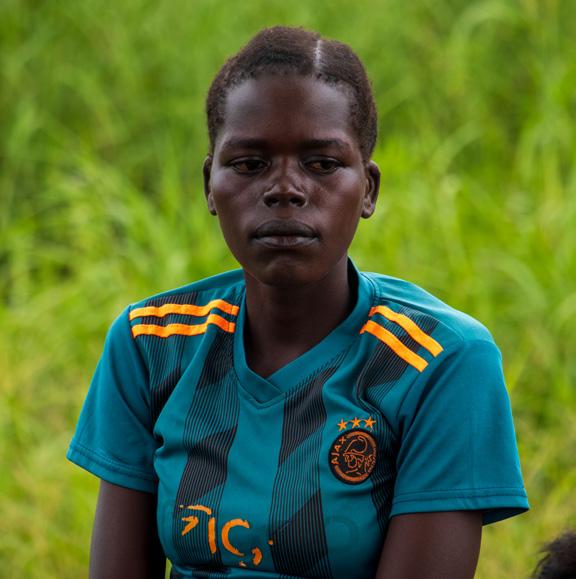

Health risk behaviours
A total of 11/148 (7.4%) children scored positive for alcohol abuse. 8.0% of 15–19 year olds reported having been involved in sexual intercourse. 10% of the sexually active adolescents aged 15-19 years had their first sexual encounter before age 15.
HIV AIDS
1.6 million People are living with HIV. 58.6% among young people compared to 36.7% among adults. 94% of adolescents are aware about HIV. Only 43% adolescents have tested for HIV. Every year 9,600 young people aged 15 -19 years are newly infected with HIV. 66% of the new HIV infections are concentrated among adolescent girls
family planning to 10% and increase the contraceptive use to 50% by 2020. Young females aged 20-24 years were 3 times more likely to use contraceptives than their counterparts 15 to 19 years. 49% of sexually active adolescents used a contraceptive method the last time they had sex.
Child Marriage
Gender Based Violence
47% boys experience peer violence compared to girls at 43%. 33% girls and boys experience teacherperpetrated violence. 60% of adolescents 10-19 years have experienced physical violence, 42% emotional violence and 10% sexual violence. 1.4% of girls aged 15-49 have been mutilated which exposes them to sexual right violation
10% of girls are married off before the age of 15. 40% of girls are re-married off before their 18th birth day.
53% of women ages 20–49 were married before the age of 18.
Family Planning
Unmet need for family planning exceeds 33%. Access and use of family planning among young people (10–24 years) and to reduce the unmet need for
Projects
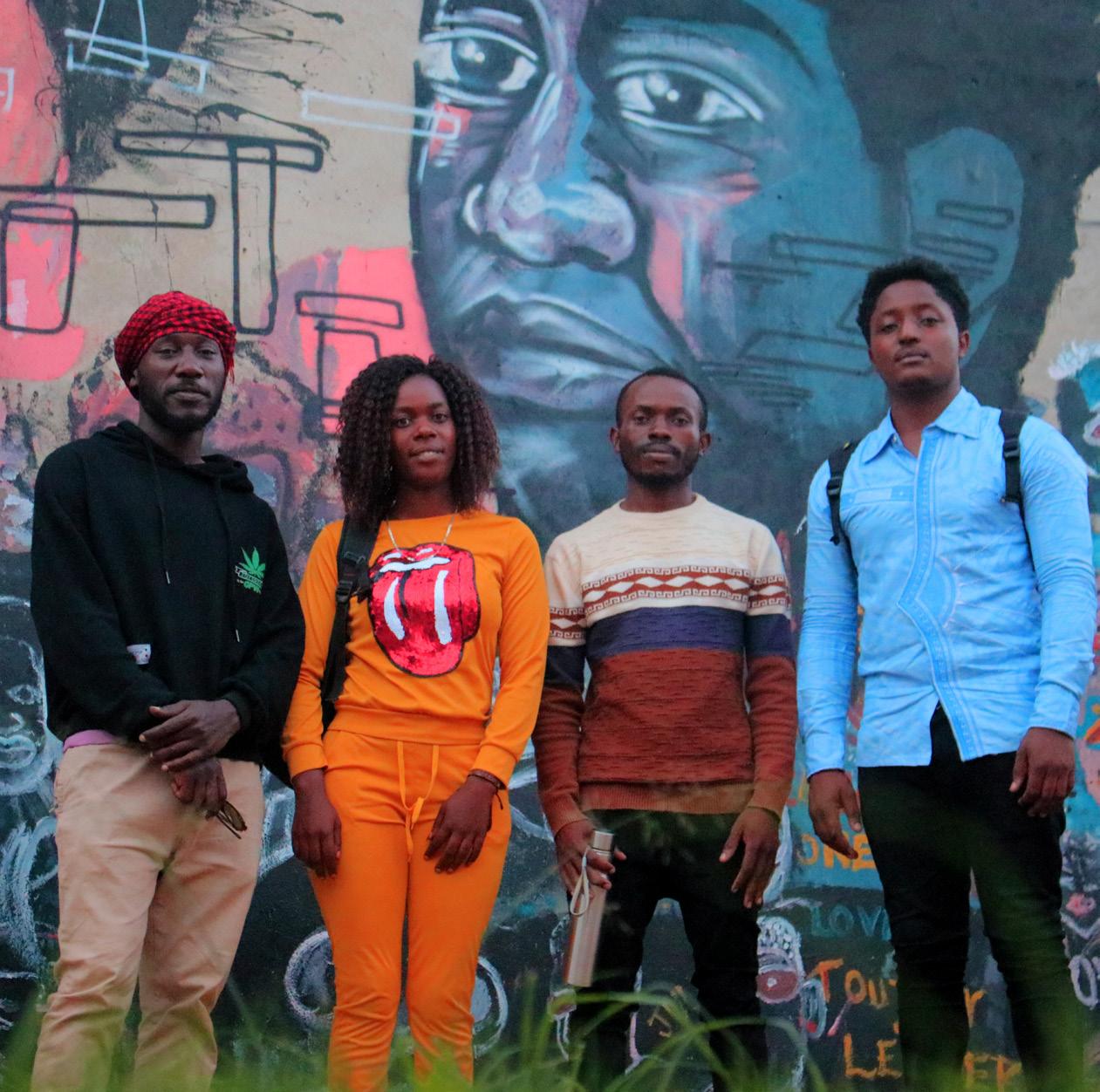
Running at PHAU
Partnership to inspire, Transform and Connect the HIV Response

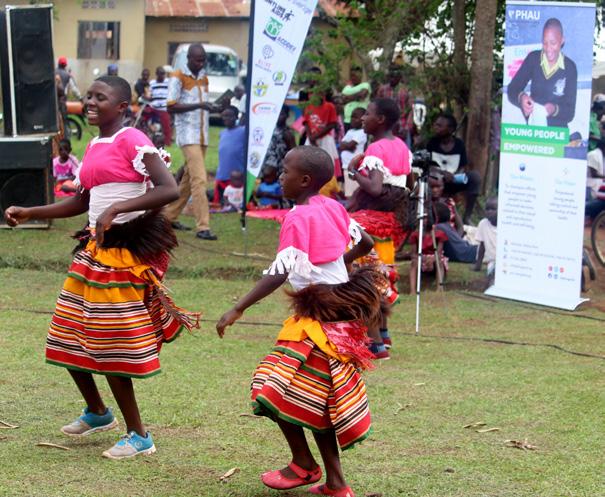

We know that those most affected by HIV are best placed to influence and shape the policies, laws, and practices needed to end the AIDS epidemic in their country. PITCH is a strategic partnership between Aids fonds, the International HIV/AIDS Alliance and the Dutch Ministry of Foreign Affairs working with those most affected by HIV in enabling these groups to transform (inter)national HIV responses by strengthening their advocacy skills and capacities and promoting innovative evidence-informed practice. We know that those most affected by HIV are best placed to influence and shape the policies, laws, and practices needed to end the AIDS epidemic in their country.
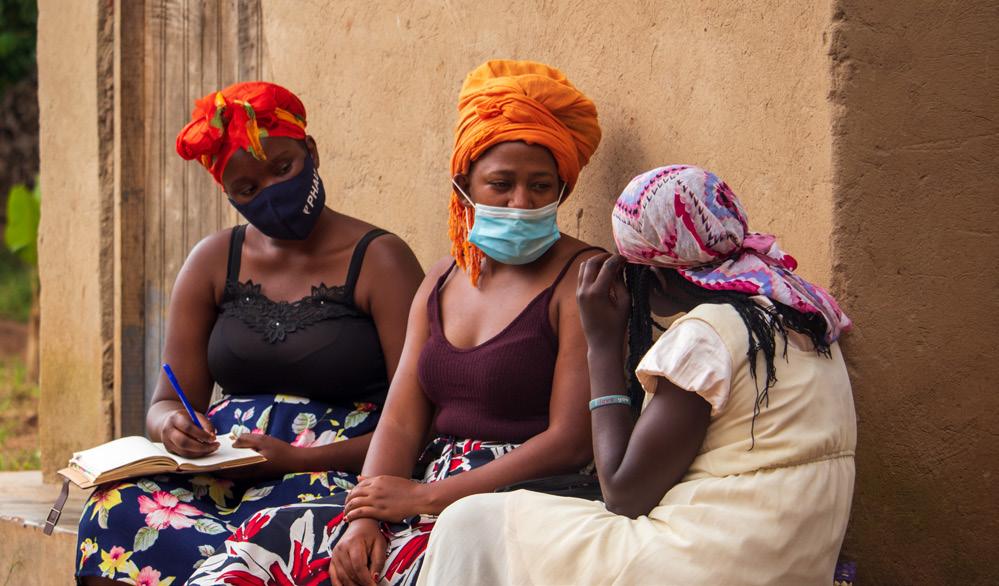
YoSpace is a youth brand being implemented by PHAU with support from Population Services International (PSI-Uganda).
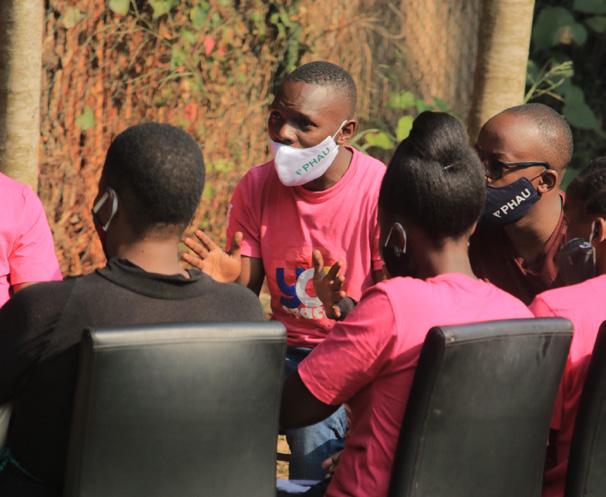

We have so far implemented this project in seven districts in Uganda namely; Luwero, Jinja, Hoima, Masindi, Kabarole, Bushenyi and Iganga. The project is conducted in a format of door to door mobilization by peer educators, radio talk shows, conducting of community outreaches, institutional outreaches with a fusion of edutainment as a key mobilization tool for young people. Young people are reached with accurate information on SRHR and later referred to “Profam Clinics”.


YO! Put Health First
The bfree project is a pilot of a newly developed antibacterial “Bfree” menstrual cup, a cup which doesn’t require boiling and like any other menstrual cup, it lasts up to 10 years. It’s a sustainable solution to menstrual hygiene challenges especially in a refugee context where women and young girls experience period poverty. The project is sub granted from Women’s Global Health innovations and a partnership between PHAU and WoMena.



Open Mic Project is a Poetry training and mentorship program implemented by Open Mic Uganda and Public Health Ambassadors Uganda under the “Culture at Work” grant. The project seeked to provide young people from diverse cultural backgrounds the skills and platforms to organize their own spoken word events in their communities. The project grant was sponsored by the European Union and was implemented among youth refugees in Nakivaale refugee settlement in Isingiro District, Uganda.
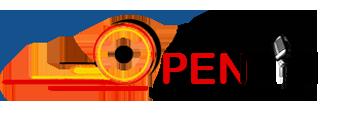

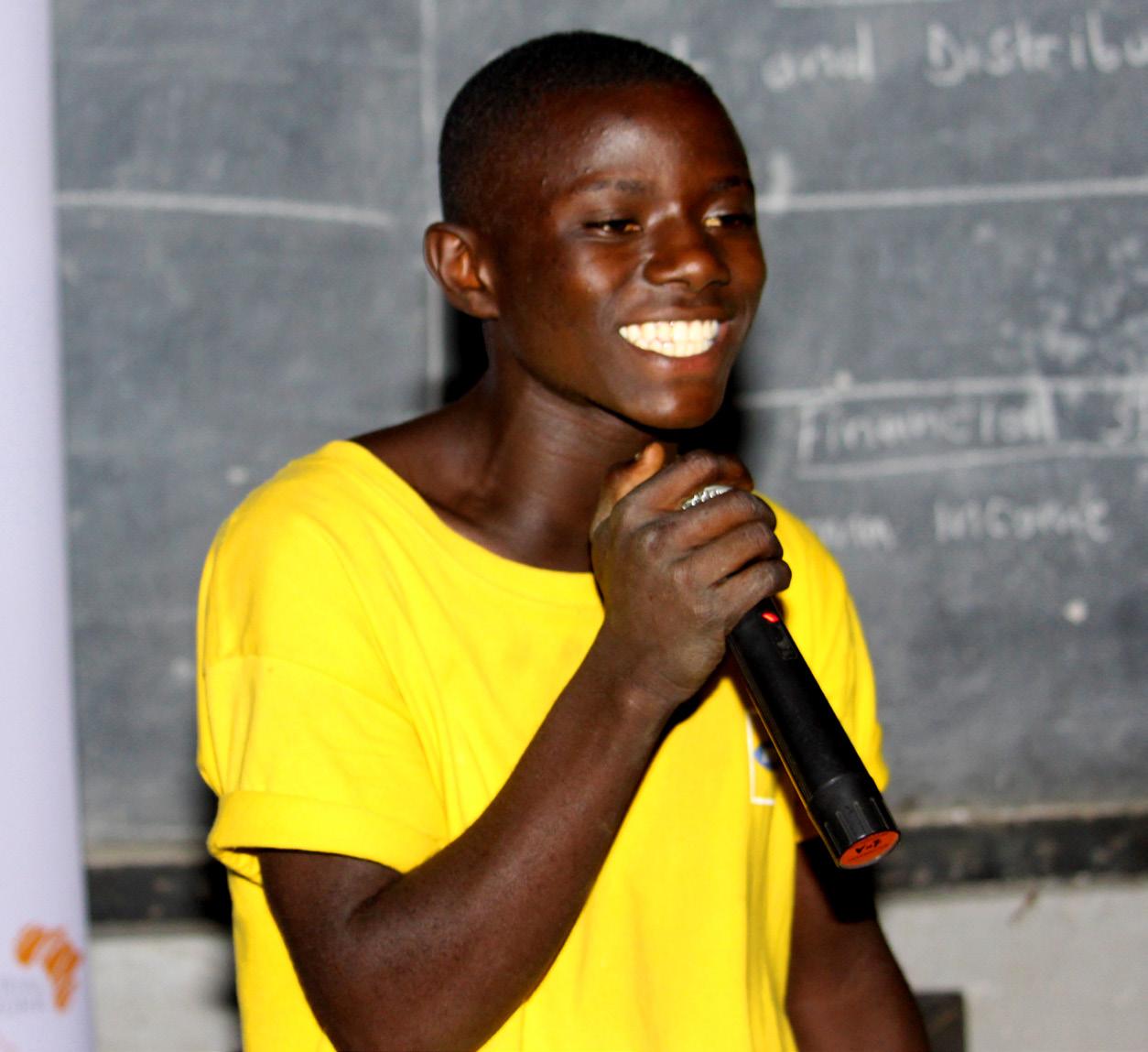
Public Health Ambassadors Program

The PHAP is an annual project and a unique opportunity for students in the public health field to build a strong movement of public health practitioners equipped with functional field experience and skills that fit the job market.
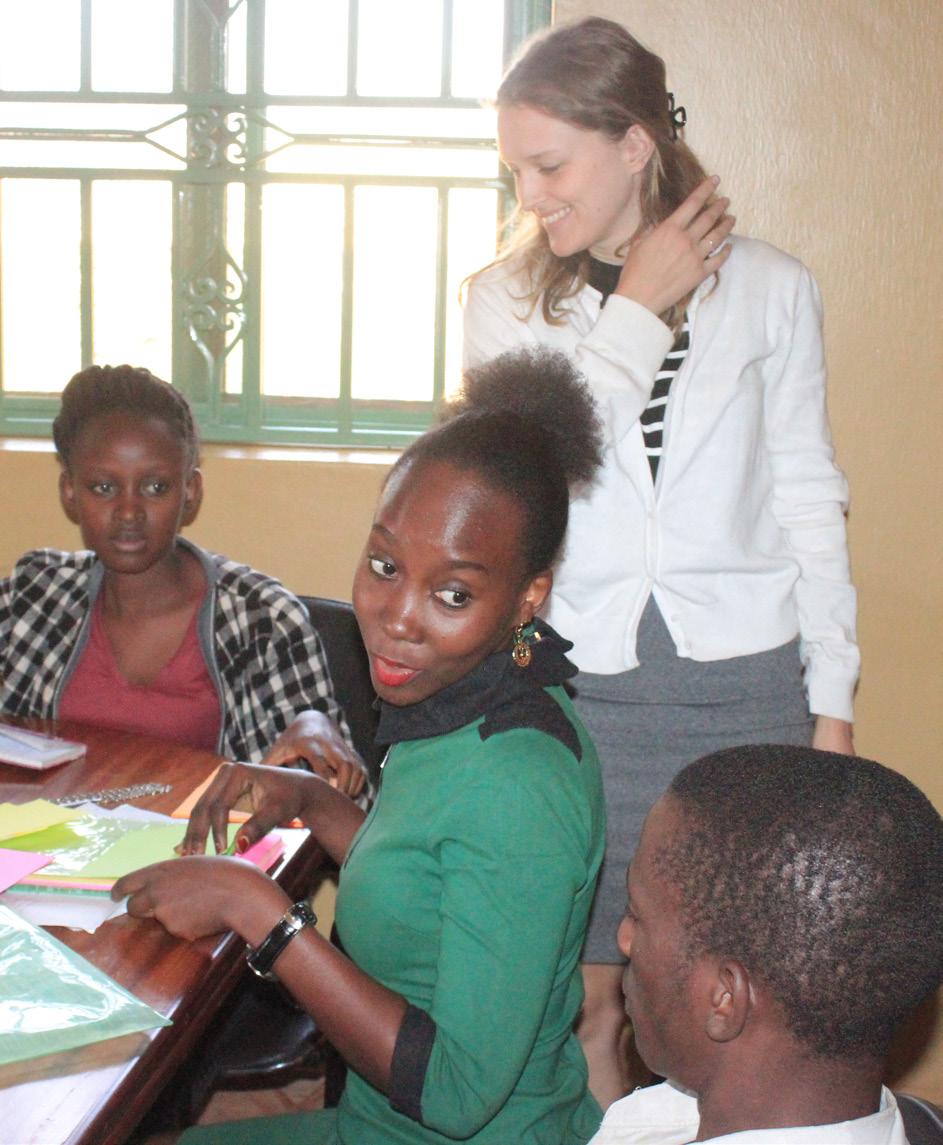
PHAP will enable you as a young person to spend between two to three months exploring public health needs and issues that you feel passionate about within your communities. PHAP is purposed to turn young people into advocates, activists, champions and change agents by empowering them with information and skills on Sexual and Reproductive Health and Rights, HIV/AIDS, Water, Hygiene and Management, Human Rights, Project Planning and Management, Evidence-Based Advocacy, Communication, Social Entrepreneurship and Critical thinking using a problem-solving and learning environment. In addition to the above, you will also gain leadership skills, networking skills, analytical skills, interpersonal skills, and teamwork skills.
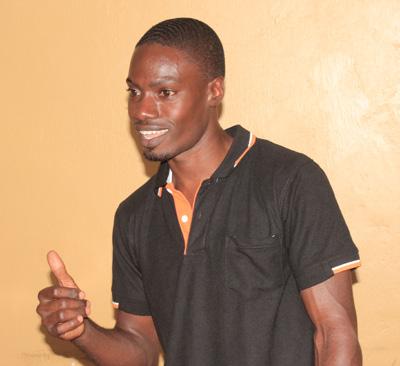
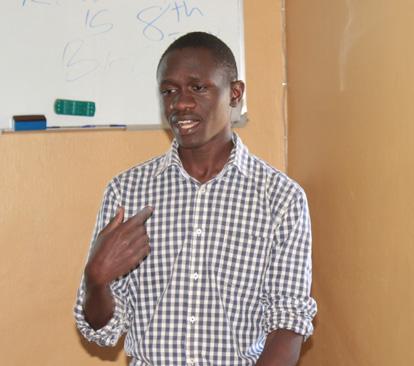

Public Health Youth Symposium

The Public Health Youth Symposium (PHYS) is an avenue for public health practitioners and professionals to communicate, connect and collaborate on pertinent public health needs and challenges at local, national and international level. It is carried out annually.
It is a gathering of public health practitioners and partners from government, academia, civil society organizations and the corporates that share a common interest and dedication in protecting, preventing and promoting the health of the populations in Uganda. The Symposium seeks to turn young people into advocates, activists, champions and change agents by empowering them with information and skills on Sexual and Reproductive Health, HIV and AIDS, Viral Hepatitis, Water, Sanitation and Hygiene Management, Human Rights, Project Planning and Management, EvidenceBased Advocacy, Communication, Social Entrepreneurship and Critical thinking using a problem-solving and learning environment. In addition to the above, young people will also gain leadership skills, networking skills, analytical skills, interpersonal skills, and teamwork skills.
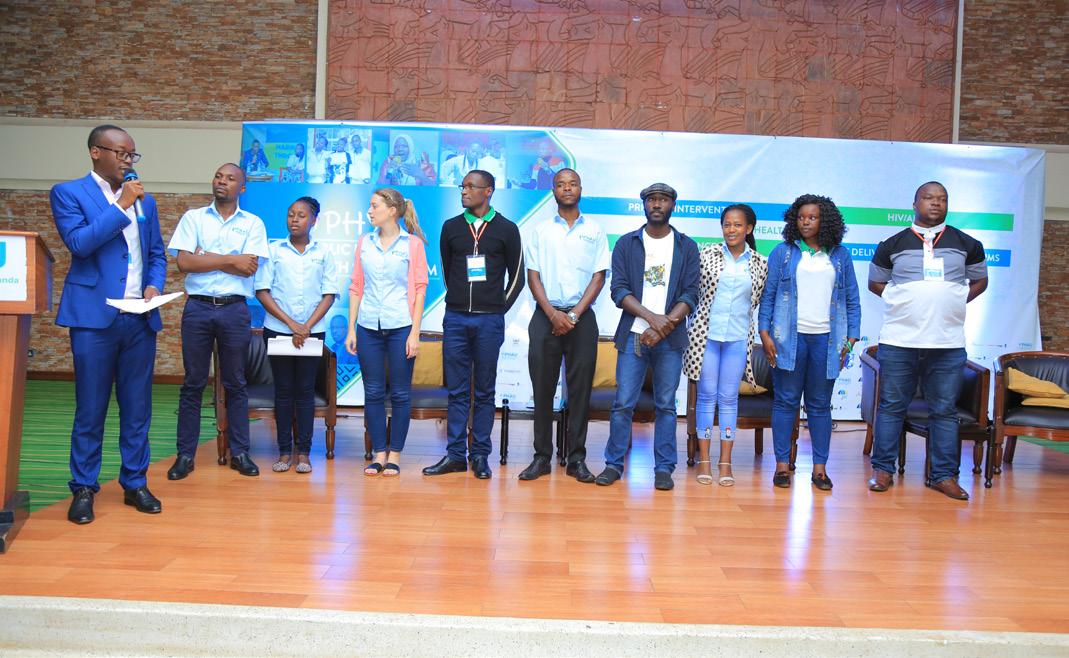
Boda Beeramu Project
This project reached out to these raiders through “Ludo”, one of the most popular interactive board games played at different bodaboda stages as a way of entertainment whenever they are not on the road transporting passengers. The project was based on the behavioral change theory that focuses on empowering riders with HIV/AIDS information through distribution of themed “Ludo” boards with different HIV/AIDS awareness messages to selected stages in Wakiso District.
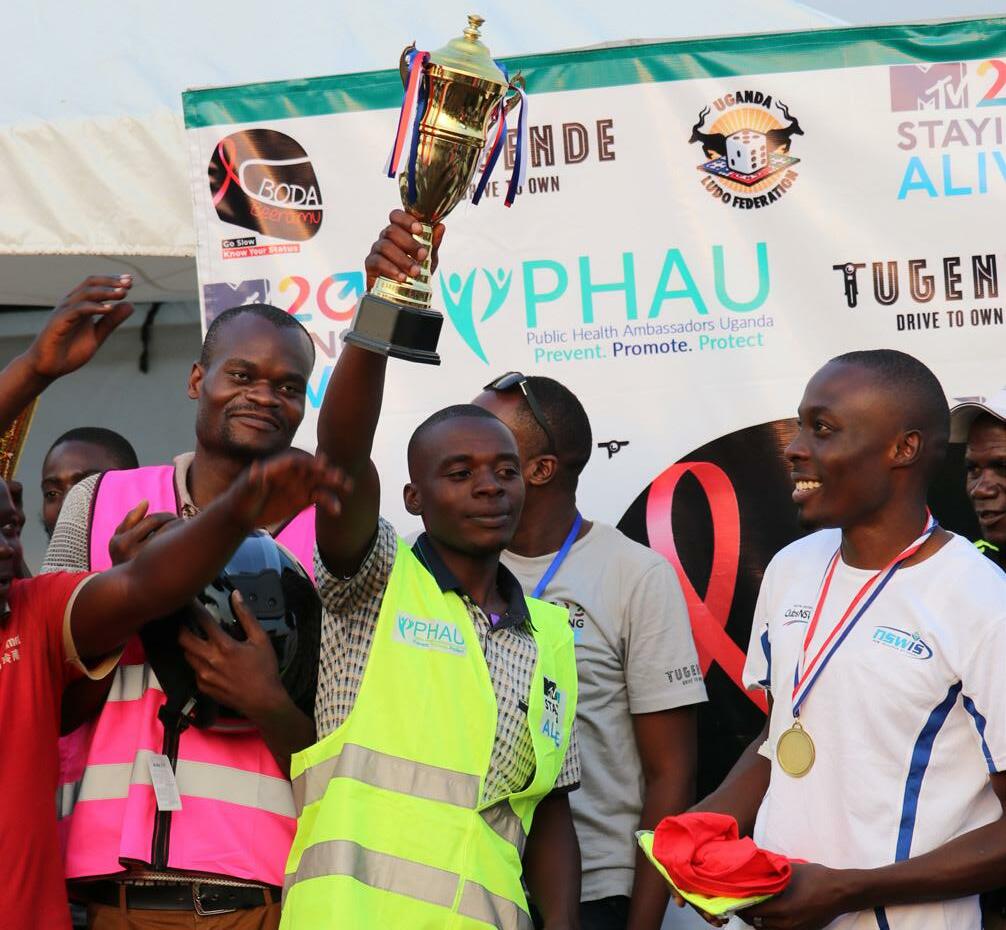



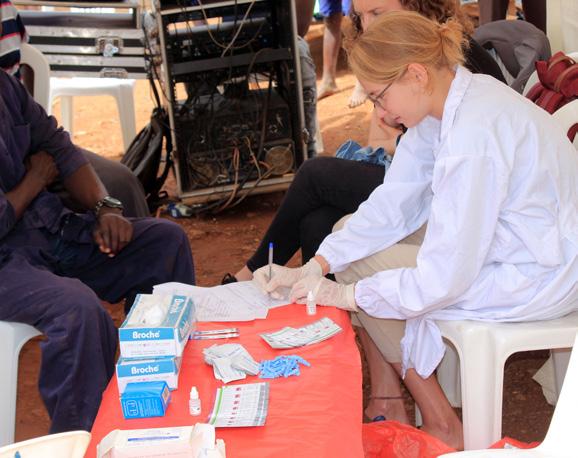
Menstruation is an integral, natural and normal process in a woman’s life. Menstrual hygiene upholds the dignity and wellbeing of women and girls.

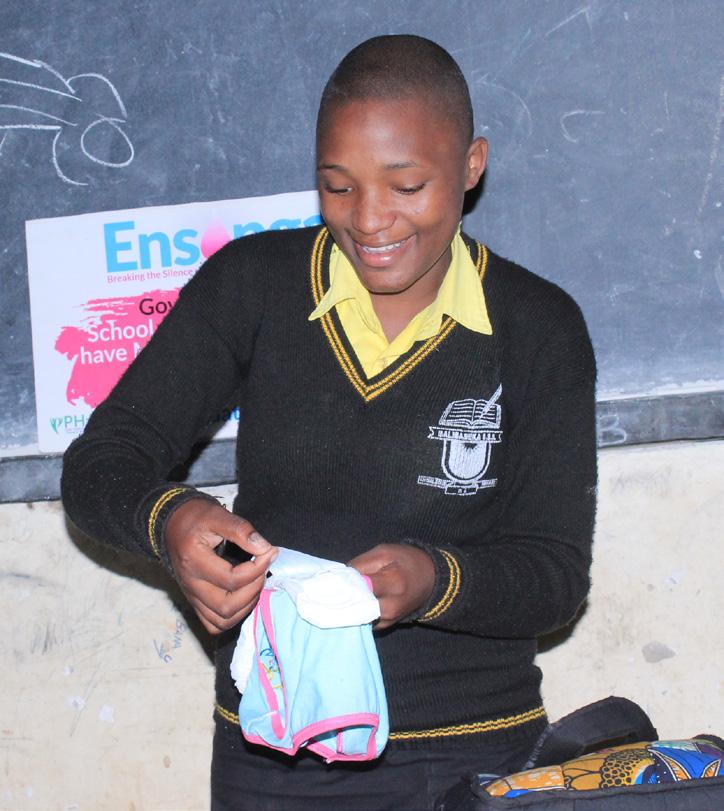

The “Ensonga” Campaign is a one year project that was launched in June 2015 by Public Health Ambassadors Uganda (PHAU) with support from Virginia Gildersleeve International Fund (VGIF) and Wakiso District Education Department. The project Was aimed at improving Menstrual Hygiene Management (MHM) among school-going adolescent girls through improved access to Water, Sanitation and Hygiene (WASH) facilities within primary and secondary schools in Wakiso District. Adolescent girls have been empowered with MHM information including the use of reusable sanitary pads through the formation of Sanitation health clubs and the construction of sustainable WASH facilities. The project slogan is #MenstruationMatters
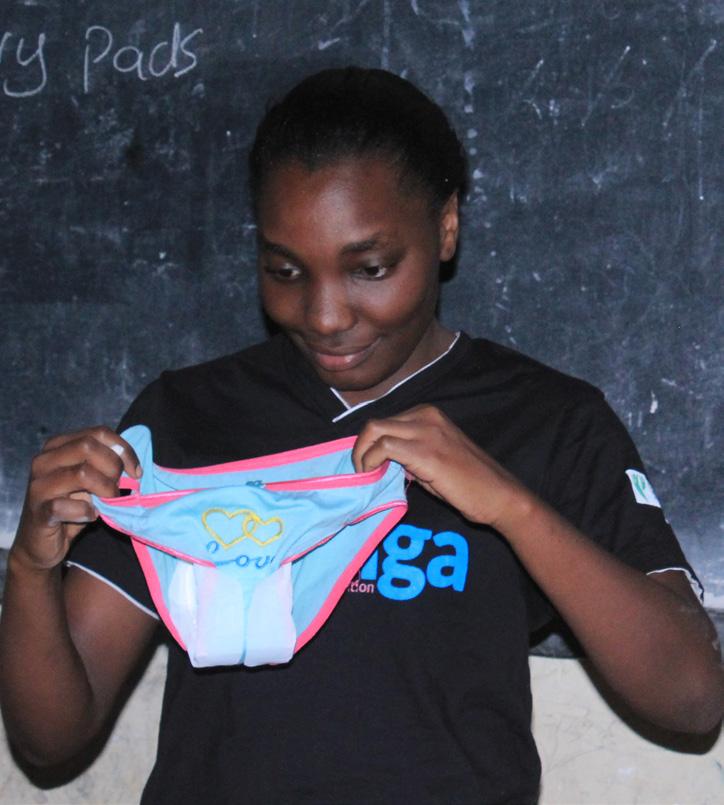
The Twist Play
THE TWIST is a play on sexual reproductive health and family planning that seeks to address some of the above issues, at least in part.
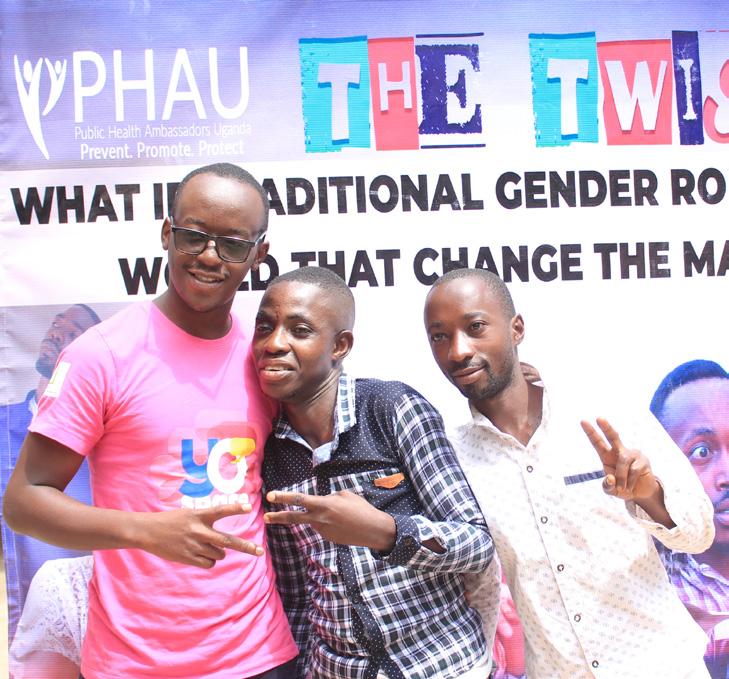
Written by Nargis Shirazi, it is staged in rural-urban Uganda and revolves around one man, his immediate family, and close friends. The play is written in art of comedy and tailored to reflect cultural norms, gender roles, poverty and the burden of planning for children. The characters range from flat (those whose character roles remain the same to the end) to round characters (those that experience behavior change).
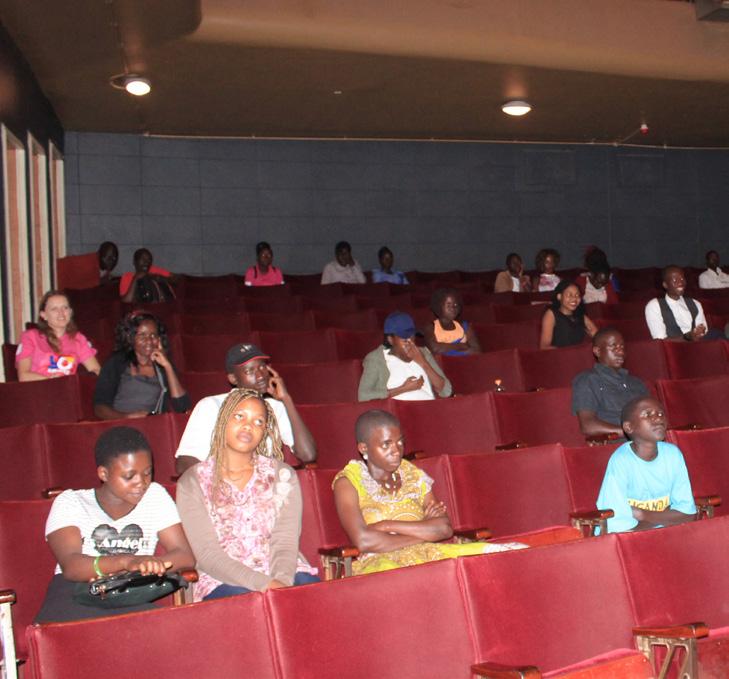
In the play, we meet Deo, the man that wants a son! Bond, the suave ladies’ man! Tembo, the best mechanic at the village town garage who believes his Ugandan parents were meant to be Jamaican. The question is, what would happen if ever the tables were turned in a typical African home? Will the twist change society’s norms?
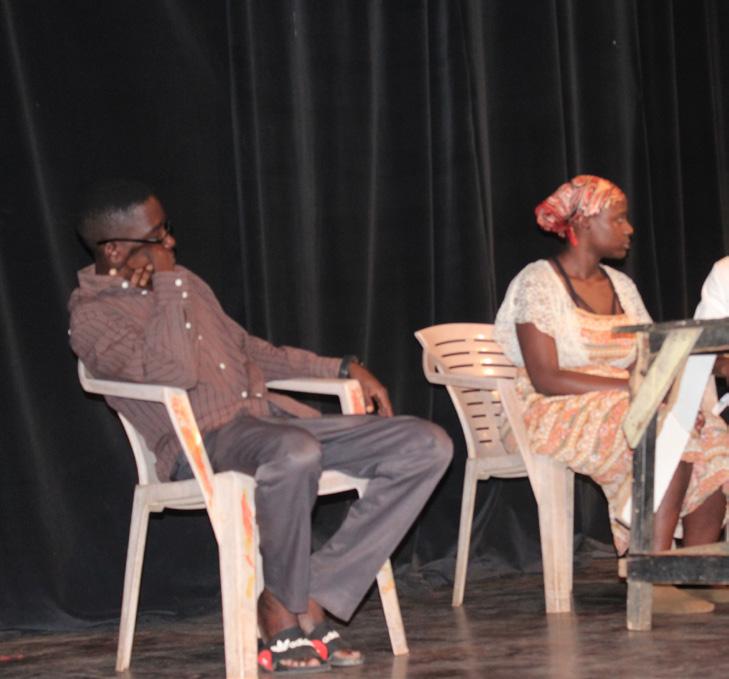
The COVA Project
The Cova Project is a women’s led NGO based in Sydney that distributes menstrual cups to local partners in countries such as Malawi, Ghana, and Liberia. Menstrual cups are a reusable hygiene product that last for 10 years meaning they are extremely cost-saving. Made of silicone, they have no negative impact on the environment, unlike disposal pads. They are leak-proof, comfortable and are being used all around the world. The menstrual cups that are being utilized for this project are ‘FlowCups’ (https://flowcup.com/) sent from Sweden.
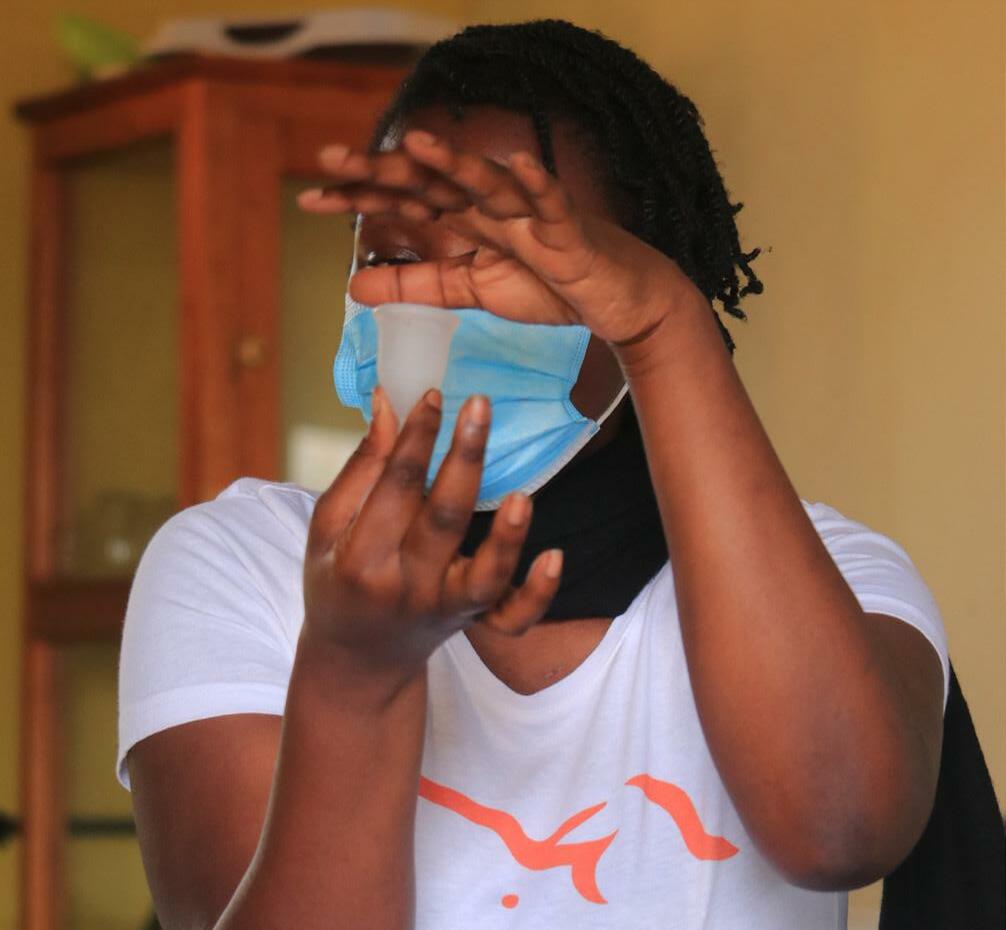



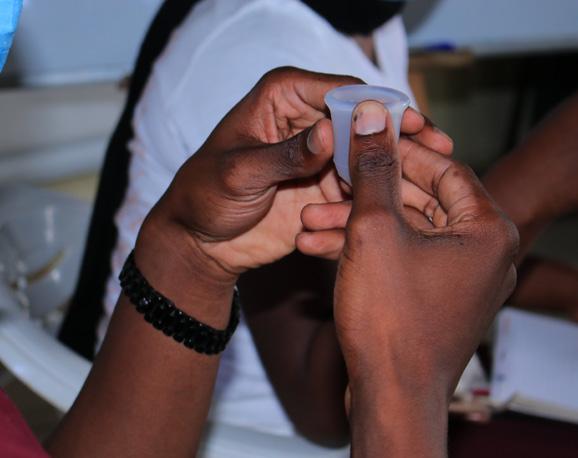
Girls Kisoboka
The Girl’s ACT is a multi-institutional drive that primarily aims to scale up the uptake of HIV/AIDS services and other connected support services. Girl’s ACT is locally dubbed as “Girls Kisoboka” meaning “It’s Possible for too” which is primarily a young woman and adolescent girl’s drive targeting this population sub-group, 12-24 years of age, from all walks of life.
Tuli Wamu Nawe Campaign
This is an Anti-HIV and AIDS Stigma project aimed at decreasing HIV and AIDS stigma and discrimination by among women and girls to foster their full engagement in the social and economic activities at the community level.
This one year project benefited 5 selected communities within Wakiso and Kampala district namely; Kyebando Kisalonsalo, Katwe, Kireka, Kasubi, and Nansana Town Council respectively. It is expected that 25 women and girls with HIV&AIDS will directly benefit from Income Generating Activities, 10,000 community members will benefit from HIV&AIDS education while 70,000 community members benefited indirectly from the project.
Worth The Wait Campaign
The project was based on the behavioral change theory that focuses on delaying first sexual experience; increase HIV, STI, and teen pregnancy-related information as well as increase the uptake of youth-friendly services in five randomly selected secondary schools.
Project Pictorial
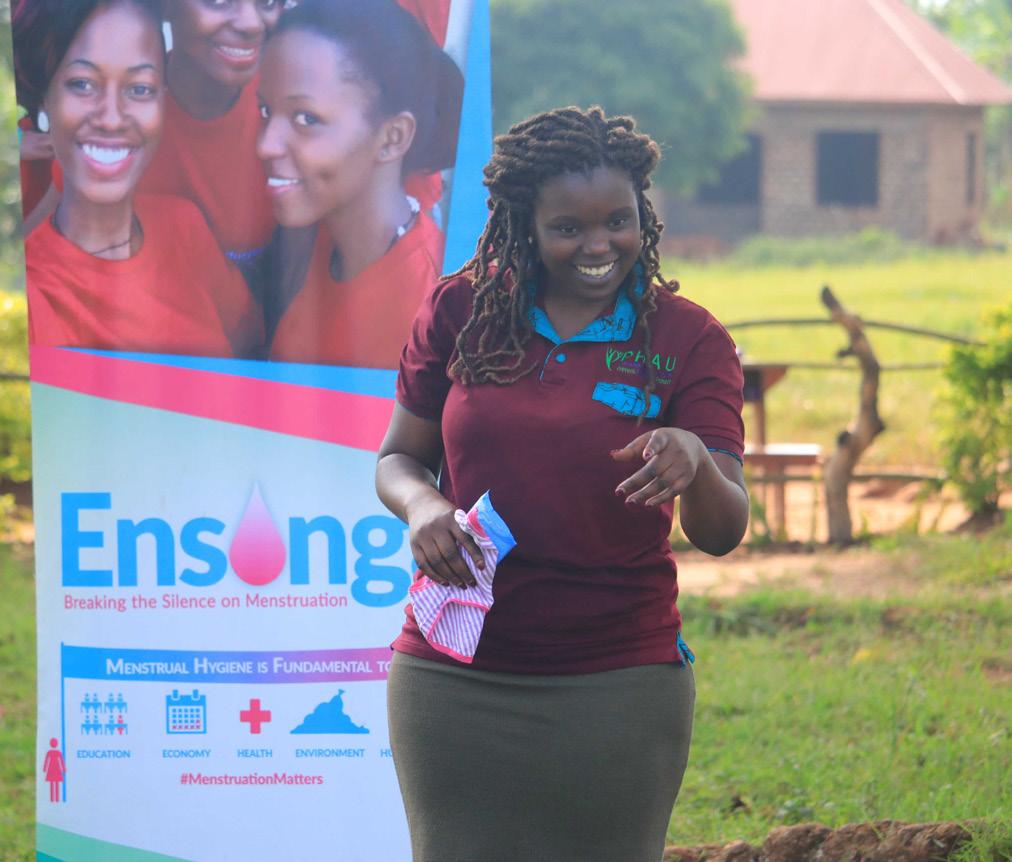
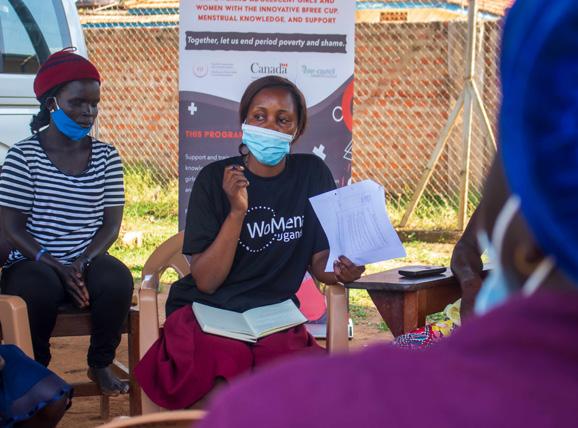


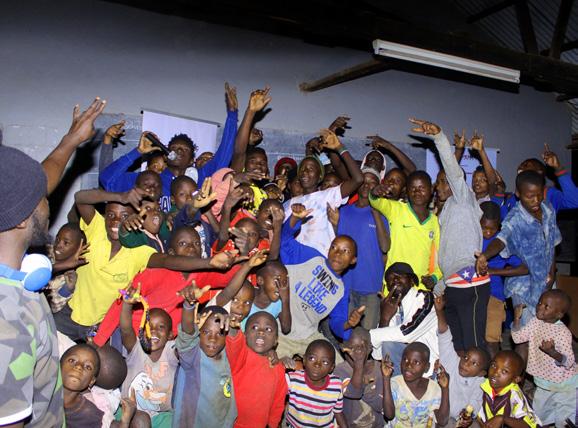
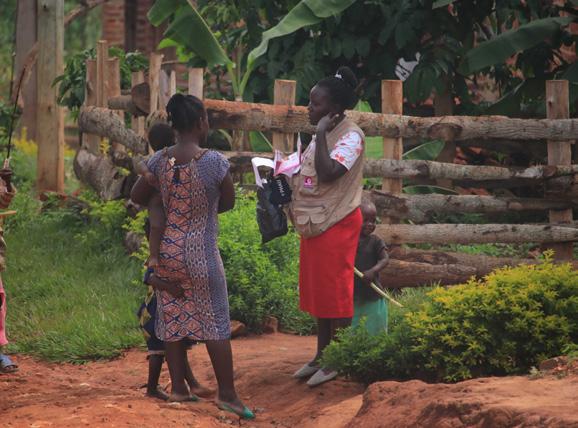

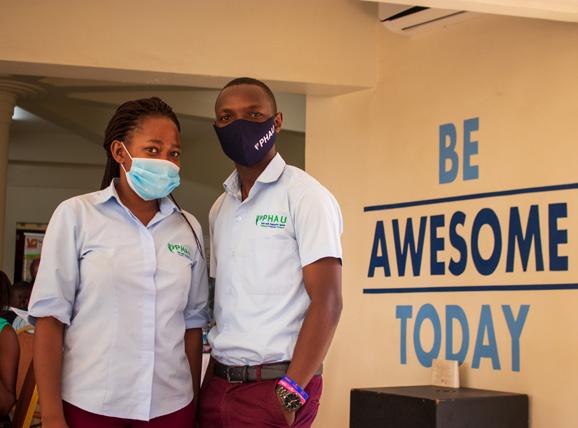
Impact

Assessment 2020

2,233,140 519,505 353,208 2,184 1,832 351 38 32 Condoms distributed (male and female) Young people reached with integrated SRHR information Young people referred for integrated SRHR services in public and private facilities People reached through the PHAU App (health digital platform) Menstrual cups distributed Peer educators trained Private and public facilities supported in provision of youth friendly services Academic institutions supported with WASH facilities (MHM)

Looking
For Where We Operate
Where We Work
Kampala | Wakiso | Luwero | Jinja | Masindi | Kiboga | Hoima | Kabarole | Bushenyi Adjumani | Insigiro | Nakaseke Nakasaongola | Koboko | Iganga
Funding Partners

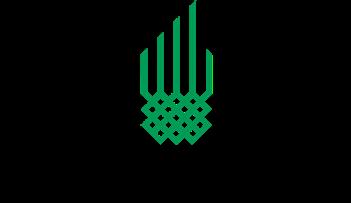


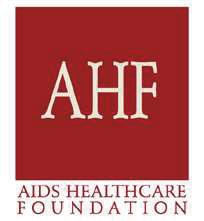



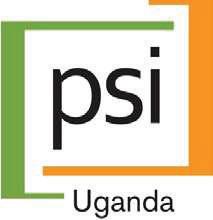












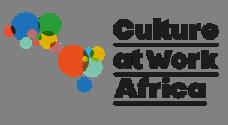


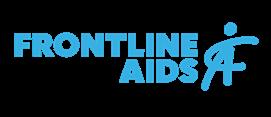
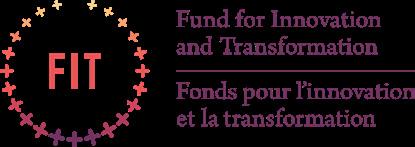
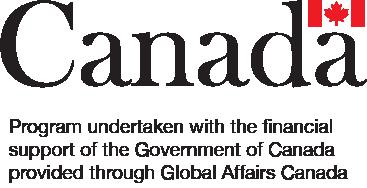


Implementing Partners
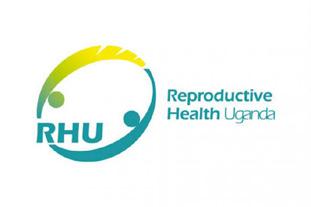


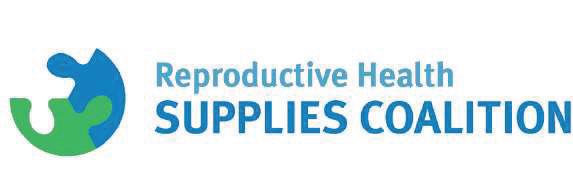

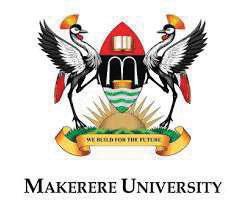
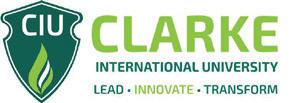









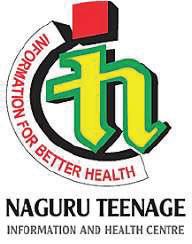
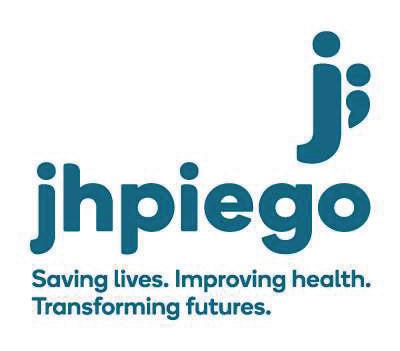
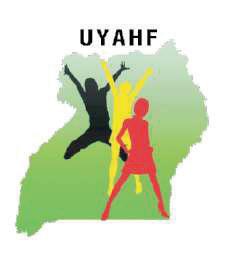










School
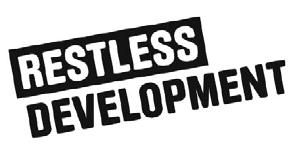
of Public Health

@phauganda Kagenda Close, Mobutu Road

























































































































